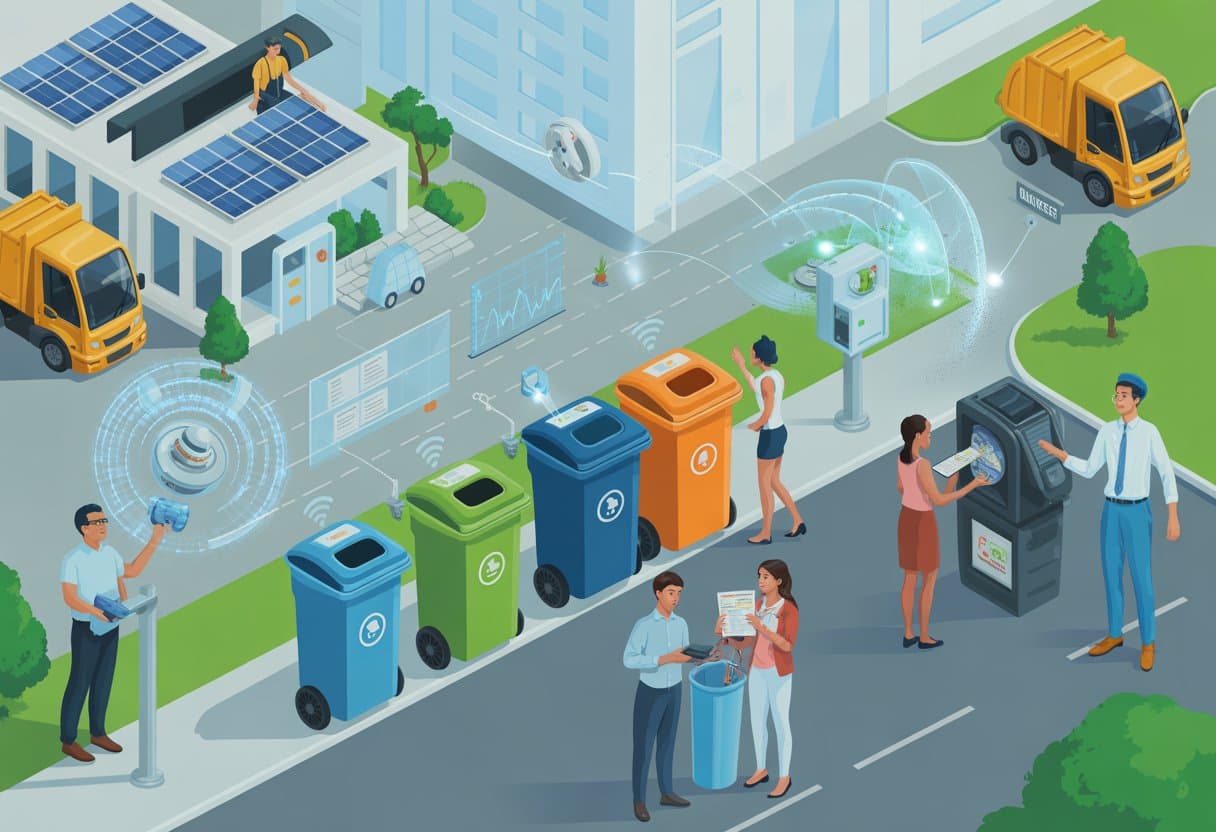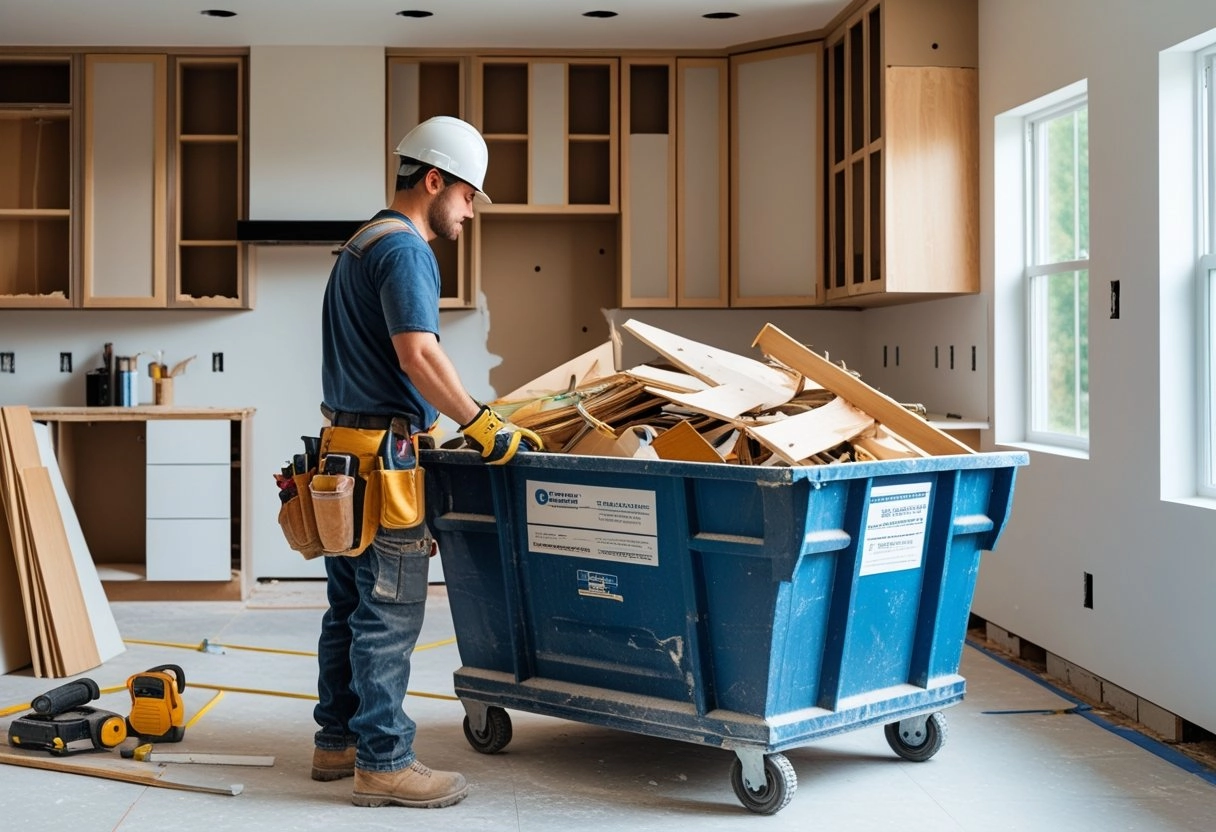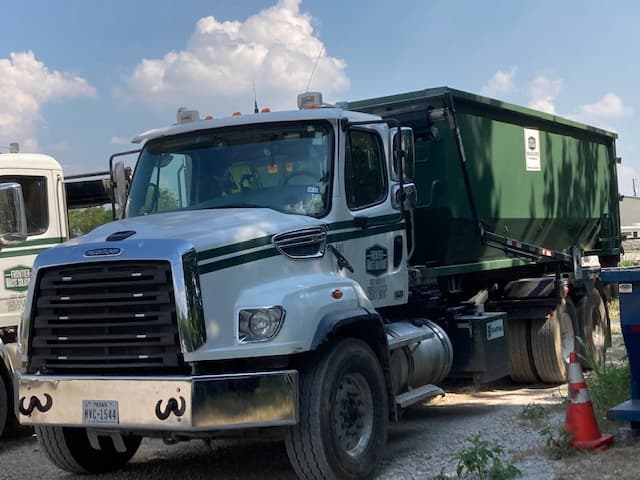Smart waste management is changing how we handle trash in our cities and homes. By using sensors, data, and automation, these systems make garbage collection more efficient and less costly. Modern waste solutions reduce environmental impact while saving money for both cities and homeowners.
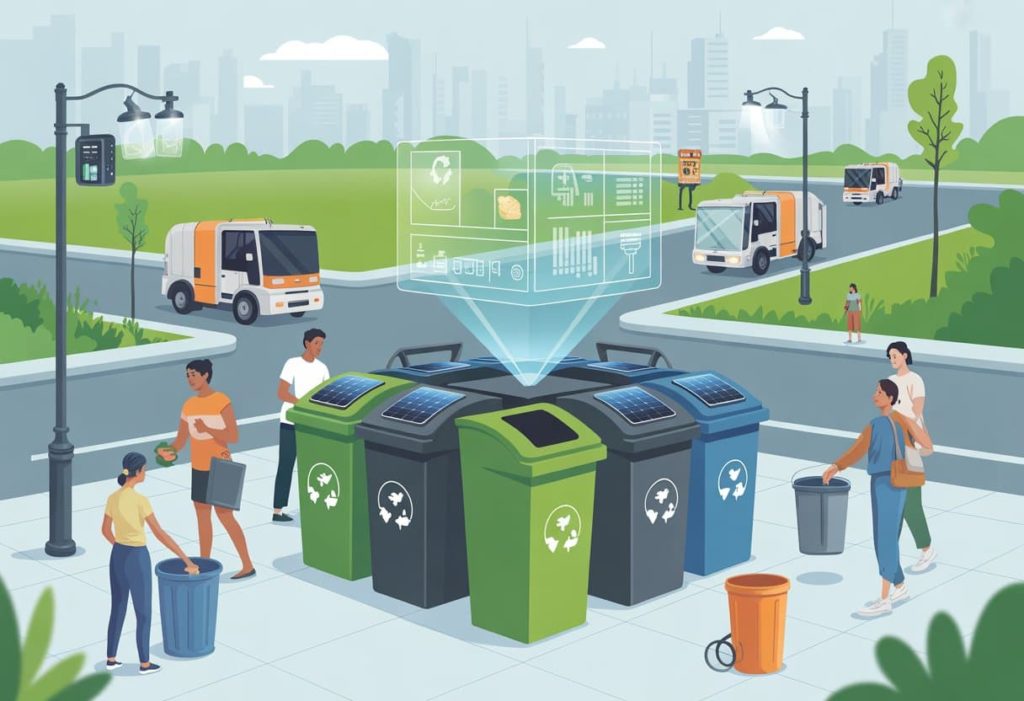
These smart systems can tell when bins are full, plan better collection routes, and even sort recyclables automatically. In Texas, communities are seeing cleaner streets and lower waste management costs after upgrading to these technologies.
The future of waste management isn’t just about removing garbage—it’s about creating cleaner communities and a healthier planet. From solar-powered compacting bins to waste-to-energy conversion, smart management turns a daily problem into an opportunity for innovation.
Why Modern Waste Systems Are Falling Short
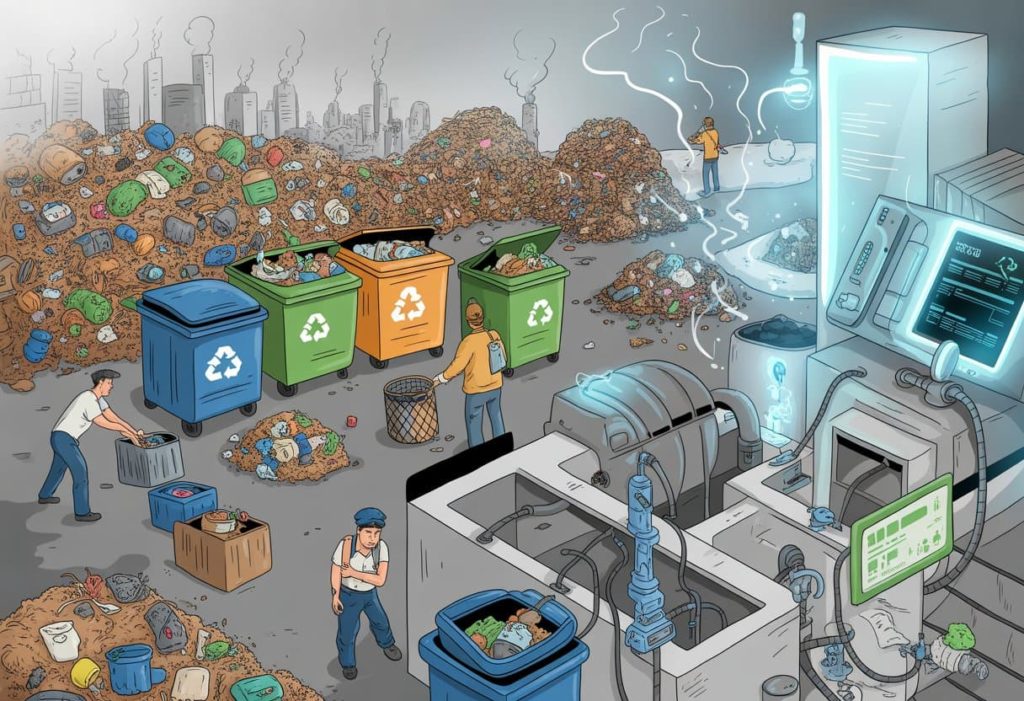
Today’s waste management systems struggle to keep pace with growing challenges. Many cities still rely on outdated infrastructure built decades ago when populations were smaller and waste production was lower.
Urban populations continue to expand rapidly, generating more solid waste than ever before. A typical American now produces nearly 4.5 pounds of trash daily – a figure that overwhelms existing collection systems.
Key Problems with Current Systems:
- Aging trucks and equipment
- Inefficient collection routes
- Limited recycling capabilities
- Manual sorting processes
- Inadequate data tracking
The rise of e-waste presents another significant hurdle. Electronics contain valuable materials but also hazardous components that require specialized handling.
Traditional landfills are reaching capacity in many regions. This space limitation drives up disposal costs and forces waste to travel greater distances, increasing carbon emissions.
Waste management companies face growing labor shortages. The industry struggles to attract workers to physically demanding positions that often involve early morning hours and variable weather conditions.
Recycling contamination rates remain problematically high. When non-recyclable items enter the recycling stream, they can damage equipment and reduce the value of recovered materials.
Most current systems lack real-time monitoring capabilities. Without data on bin fullness, route efficiency, or waste composition, operators cannot optimize their processes.
Urbanization creates additional complexities as dense city environments make waste collection more challenging. Narrow streets, traffic congestion, and limited space for waste containers complicate service delivery.
What Smart Waste Management Really Means
Smart waste management uses technology to handle trash more efficiently. It combines sensors, internet connections, and computers to create a smarter system.
At its core, smart waste management relies on the Internet of Things (IoT). Special sensors in trash bins track how full they are and alert collection teams when pickup is needed.
Data analytics plays a crucial role by turning all this information into useful insights. Companies can see patterns and make better decisions about when and where to send trucks.
Key Components of Smart Waste Management:
- Fill-level sensors in containers
- GPS tracking on collection vehicles
- Data analysis software
- Mobile apps for staff and customers
- Real-time monitoring systems
Artificial intelligence helps predict when bins will fill up based on past patterns. This prevents overflowing containers and unnecessary pickups.
The smart approach is fundamentally data-driven. Instead of following fixed schedules, waste collection responds to actual needs. This saves fuel, time, and labor costs.
Connectivity between different parts of the system is essential. When a bin reaches capacity, the information travels through wireless networks to central computers.
Some advanced systems even use robots for sorting recyclables. These machines can separate materials faster and more accurately than humans.
Automation reduces the manual work needed throughout the waste management process. From collection to processing, machines handle more of the tasks.
Tangible Benefits For Cities, Businesses & Facilities
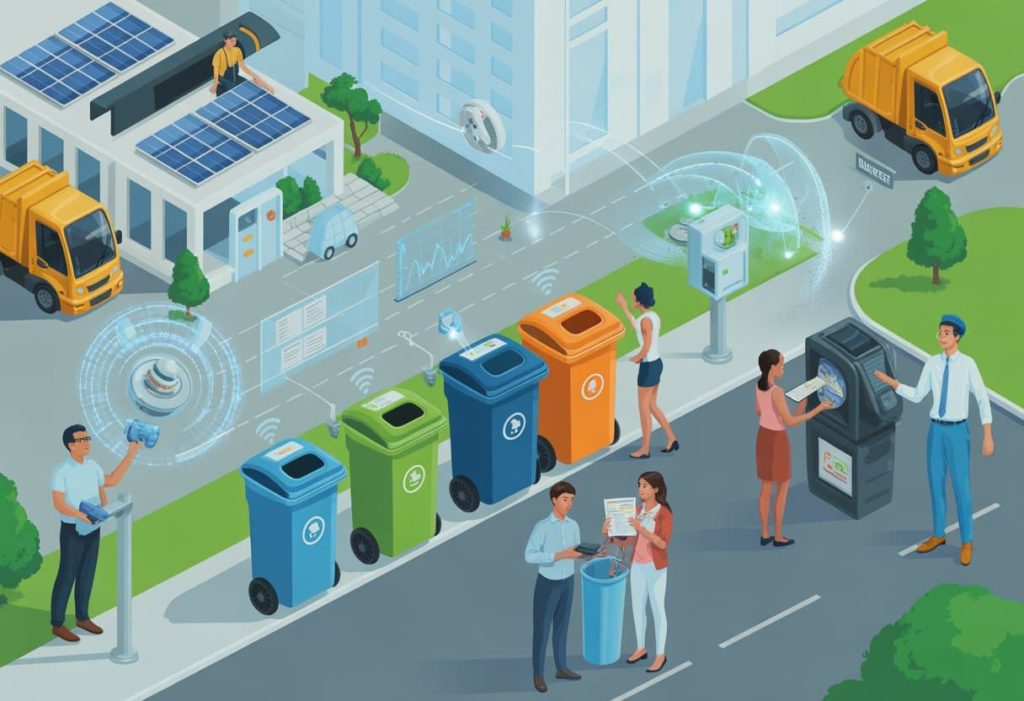
Smart waste management delivers clear financial returns for municipalities and organizations. Cities using smart bins report up to 30% reduction in collection costs through optimized routing and scheduling.
Fuel consumption drops significantly when trucks make fewer unnecessary stops. Some cities have measured 20-40% decreases in collection vehicle mileage, directly cutting both costs and emissions.
Resource efficiency improves in multiple ways:
- Real-time fill level monitoring prevents overflow events
- Route optimization reduces labor hours and vehicle wear
- Predictive analytics enable proactive maintenance
Businesses participating in smart waste programs often see recycling rates climb by 15-25%. This boost comes from better sorting, contamination reduction, and increased program participation.
Many facilities qualify for LEED certification points through documented waste diversion. The detailed tracking data from smart systems provides exactly the evidence needed.
Smart waste management supports circular economy initiatives by providing precise material stream data. This information helps cities identify new recycling opportunities and measure progress.
The integration with broader smart city initiatives creates additional value. Connected waste systems can share data with other municipal services for coordinated planning and operations.
| Benefit Area | Typical Results |
| Collection costs | 20-30% reduction |
| Fuel usage | 20-40% decrease |
| Recycling rates | 15-25% increase |
| Carbon footprint | 25-35% reduction |
Waste-to-energy facilities operate more efficiently with consistent, well-sorted materials. Smart systems help ensure these facilities receive appropriate feedstock.
Smart Waste Management In Action
Smart waste management is transforming how cities and businesses handle trash collection. Real-world applications show impressive results across various settings.
In Texas neighborhoods, smart waste bins equipped with fill-level sensors alert collection teams when bins reach capacity. This prevents overflowing containers and reduces unnecessary pickup trips by up to 30%.
Retail Implementation Success
- 25% reduction in collection costs
- 40% fewer overflow incidents
- Improved customer experience with cleaner premises
IoT technology connects these smart bins to central monitoring systems. When bins reach 80% capacity, they automatically notify waste management teams to adjust collection schedules.
Municipal parks benefit greatly from smart waste solutions. Sensors monitor bin status remotely, allowing maintenance crews to prioritize areas needing immediate attention. This keeps public spaces cleaner during peak usage times.
Route optimization software plots the most efficient collection paths based on real-time data. Trucks now follow dynamic routes that save fuel and reduce emissions by targeting only bins needing service.
Some advanced cities have installed pneumatic waste pipes that transport trash underground directly to processing facilities. This eliminates the need for traditional collection trucks in dense urban areas.
Property managers now monitor waste services across multiple buildings from a single dashboard. The system tracks recycling rates, waste volume, and collection frequencies to identify improvement opportunities.
Construction sites use smart waste management to track debris removal and coordinate dumpster exchanges. Project managers receive alerts when containers reach capacity, preventing costly work delays.
How Frontier Waste Solutions Deploys Smart Systems
Frontier Waste Solutions has transformed Texas waste management through innovative smart systems. Their approach combines cutting-edge technology with practical applications for better waste handling.
The movement towards a complete “smart waste management” system takes time. So far, we have invested in state-of-the-art technology for trucks. Our tracking systems optimize routes and work to save gas and reduce our carbon footprint.
For our business waste audits, our teams conduct thorough site visits before deployment. During these visits, experts analyze waste patterns and recommend the optimal placement of bins and scheduling of pickups.
Frontier’s digital platform gives clients incredible insights to their service. Business owners can track collection schedules, waste volume, and rates.
Our software system handles route optimization automatically. This reduces fuel consumption and vehicle wear while ensuring timely pickups.
Staff members receive comprehensive training on all smart system features. Frontier provides ongoing technical support through a dedicated customer service team.
Pricing options scale with client needs. Small businesses can start with basic monitoring, while larger operations might implement full-scale smart waste solutions.
The results speak for themselves. Clients typically see a reduction in collection costs and significant improvements in recycling rates after implementing these systems.
Let’s Build A Smarter Waste Plan For Your Property

Creating an efficient waste management plan starts with understanding your property’s unique needs. Whether you manage a residential community, commercial building, or industrial facility, a customized approach is key.
Step 1: Schedule a property walkthrough. Frontier Waste Solutions experts will visit your location to assess current waste patterns. This on-site evaluation helps identify improvement opportunities specific to your space.
Step 2: Analyze your waste stream. Different properties produce different types of waste. Our team examines what you’re throwing away and recommends the right solutions.
- Residential – Focus on recycling education and right-sized bins
- Commercial – Balance daily office waste with specialized disposal needs
- Industrial – Handle production materials and regulatory compliance
- Public spaces – Manage high-volume, varied waste efficiently
Your custom waste efficiency report will highlight savings opportunities. Most properties can reduce collection frequency while maintaining cleanliness standards.
Private property managers often discover hidden costs in their current waste systems. Data-driven decisions lead to immediate improvements in both service and budget.
Ready to modernize your waste management? Contact Frontier Waste Solutions to begin your smart waste journey today.
Frequently Asked Questions
Smart waste management systems are transforming how cities and businesses handle waste collection. These innovative solutions use technology to improve efficiency and reduce environmental impact.
How do smart waste bins utilize IoT technology to manage waste?
Smart waste bins contain sensors that monitor fill levels in real-time. These sensors collect data and transmit it wirelessly to central management systems.
When bins reach capacity, the system automatically alerts collection teams. This prevents overflow and optimizes collection routes based on which bins actually need emptying.
Some advanced bins include compactors powered by solar panels that compress waste when sensors detect high levels. This multiplies the bin’s capacity by up to five times.
What are the different types of waste management systems that can be considered ‘smart’?
Route optimization systems use algorithms to create the most efficient collection paths. These reduce fuel consumption and vehicle wear by up to 30%.
Automated sorting facilities employ optical sensors, magnets, and AI to separate recyclables from general waste. This increases recycling rates and reduces manual labor.
RFID tracking systems monitor waste from collection to disposal, ensuring proper handling and regulatory compliance. Underground vacuum systems transport waste through underground pipes, eliminating the need for trucks in some areas.
What innovative features do smart waste management apps offer to users and municipalities?
Real-time reporting allows residents to notify authorities about illegal dumping or overflowing bins. Users receive collection schedule reminders and updates about service changes.
Interactive maps show nearby recycling centers and specialty disposal locations. Some apps include waste sorting guides with barcode scanners to identify recyclable items.
For municipalities, dashboard analytics track key performance indicators like diversion rates and collection efficiency. Citizen engagement features gather feedback to improve services.
How does smart waste management contribute to sustainability and environmental protection?
Optimized collection routes reduce fuel consumption and vehicle emissions by up to 40%. Efficient sorting increases recycling rates and diverts waste from landfills.
Smart systems help prevent illegal dumping through monitoring and quick response. Fill-level monitoring reduces unnecessary collections of partially empty bins.
Data analytics identify waste patterns that can inform reduction strategies. Some systems integrate with renewable energy sources like solar power to minimize carbon footprint.

